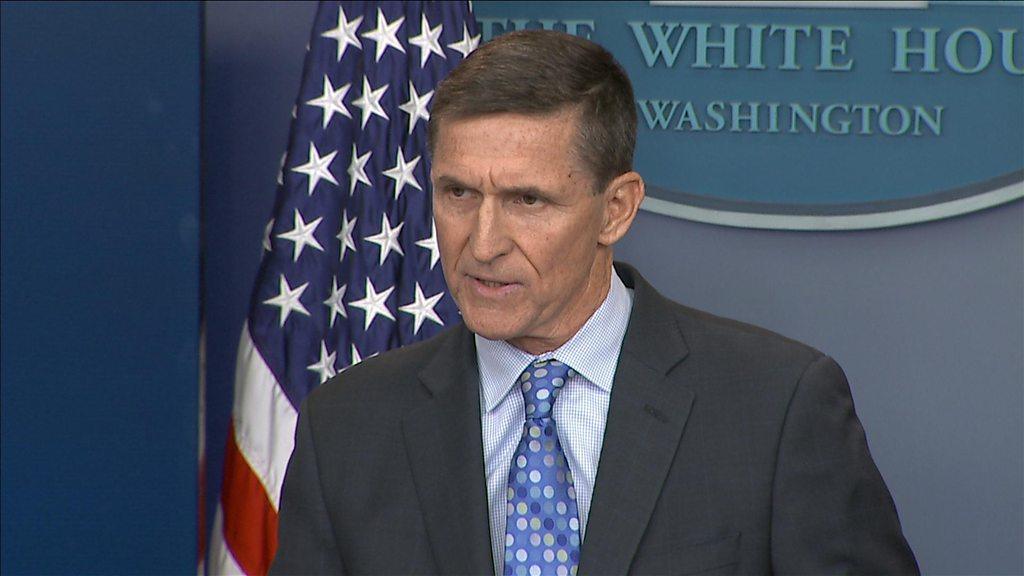Iran nuclear deal: Rouhani warns US against 'political suicide'
- Published
Mr Rouhani said Iran would "respond to violations"
Iranian President Hassan Rouhani has warned US President Donald Trump he risks political suicide if he scraps the nuclear deal with Tehran.
At his swearing-in ceremony, Mr Rouhani said Iran would continue to abide by the terms of the deal as long as the other signatories do the same.
The White House says Iran is complying with the deal but Mr Trump says Iran is violating its spirit.
Last month the US state department announced new sanctions on the country.
The US says the sanctions relate to Iran's missile programme and alleged support for terror groups but Tehran says they violate the nuclear deal.
Mr Rouhani - being sworn in for a second term after winning presidential elections in May - said he had nothing to do with "newcomers to the world of politics" and urged "old-timers" to see the nuclear deal as an example of how to manage international relations.
"Those who want to tear apart the JCPOA [nuclear deal] should know that they would also be tearing apart their political life," he said in a ceremony broadcast live on state TV.
He accused the US of a "lack of commitment" to the deal and said it was an "unreliable partner".
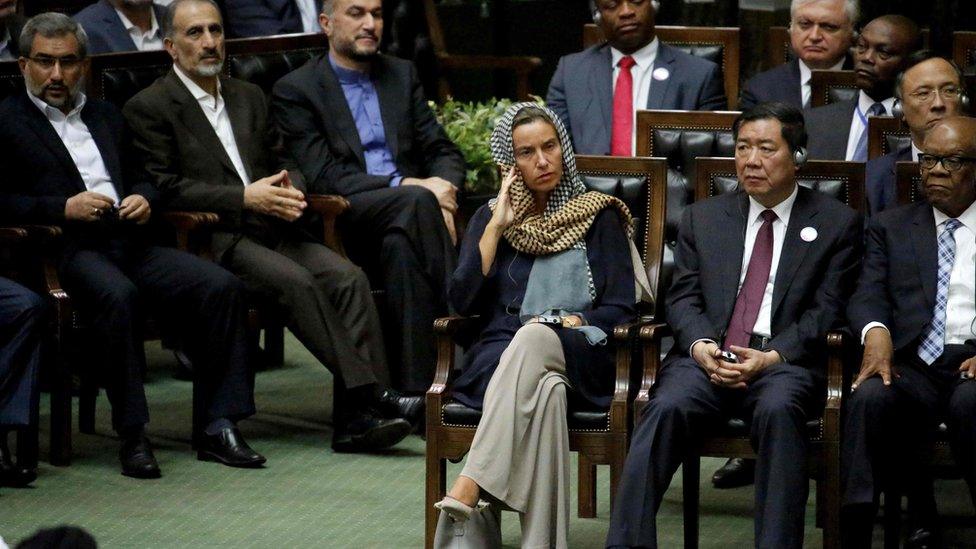
EU foreign policy chief Federica Mogherini (C) was among guests at the inauguration
Meanwhile Iranian officials have been urging Europe not to side with the Trump administration.
Foreign Minister Javad Zarif said Mr Trump was "trying to destroy the nuclear accord at Iran's expense" and said "Europe should be conscious of this", private Tasnim news agency said.
Ali Akbar Velayati, a senior adviser to Iran's Supreme Leader Ayatollah Ali Khamenei, asked Europe to "take a more independent policy towards Iran", state media reported.
Mr Rouhani won 57% of the vote in May's election after promising to create jobs and build bridges with the outside world.

Rouhani's people power - Kasra Naji, BBC Persian
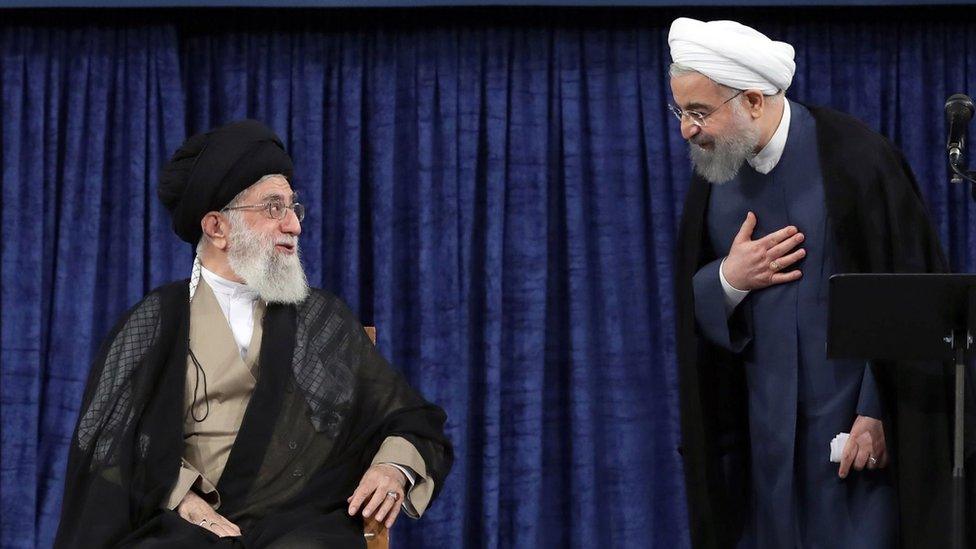
Supreme Leader Ayatollah Ali Khamenei (L) is not elected, unlike Mr Rouhani (R)
In Iran the ultimate power lies with Supreme Leader Ayatollah Ali Khamenei. He has been ruling the country for nearly three decades, increasingly like an absolute monarch.
Constitutionally he has power to lay down the general guidelines. He is commander-in-chief with the power to declare war or peace and appoint all the top generals, as well as the head of the judiciary.
Informally he has been demanding to approve ministers in several key ministries. All this leaves little to the president.
But the supreme leader is not elected - he is chosen by a group of clergymen. In May, nearly 24m people voted for Mr Rouhani - a source of power that the hardliners, even the supreme leader, cannot ignore.

Dozens of world dignitaries attended Mr Rouhani's inauguration at Iran's parliament, reflecting an easing in Iran's isolation since the nuclear deal.
Guests included EU foreign policy chief Federica Mogherini and the chairman of the North Korean parliament, Kim Yong-nam, signalling a growing closeness between Tehran and Pyongyang particularly over defence matters.
Last month, the US state department accused Iran of undermining stability, security and prosperity in the Middle East.
It criticised Iran's support for the Syrian government and groups such as Hezbollah and Hamas and accused it of prolonging the conflict in Yemen by providing support for Houthi rebels.
The state department announcement came a day after the Trump administration certified that Tehran was complying with its nuclear deal obligations.
- Published18 July 2017
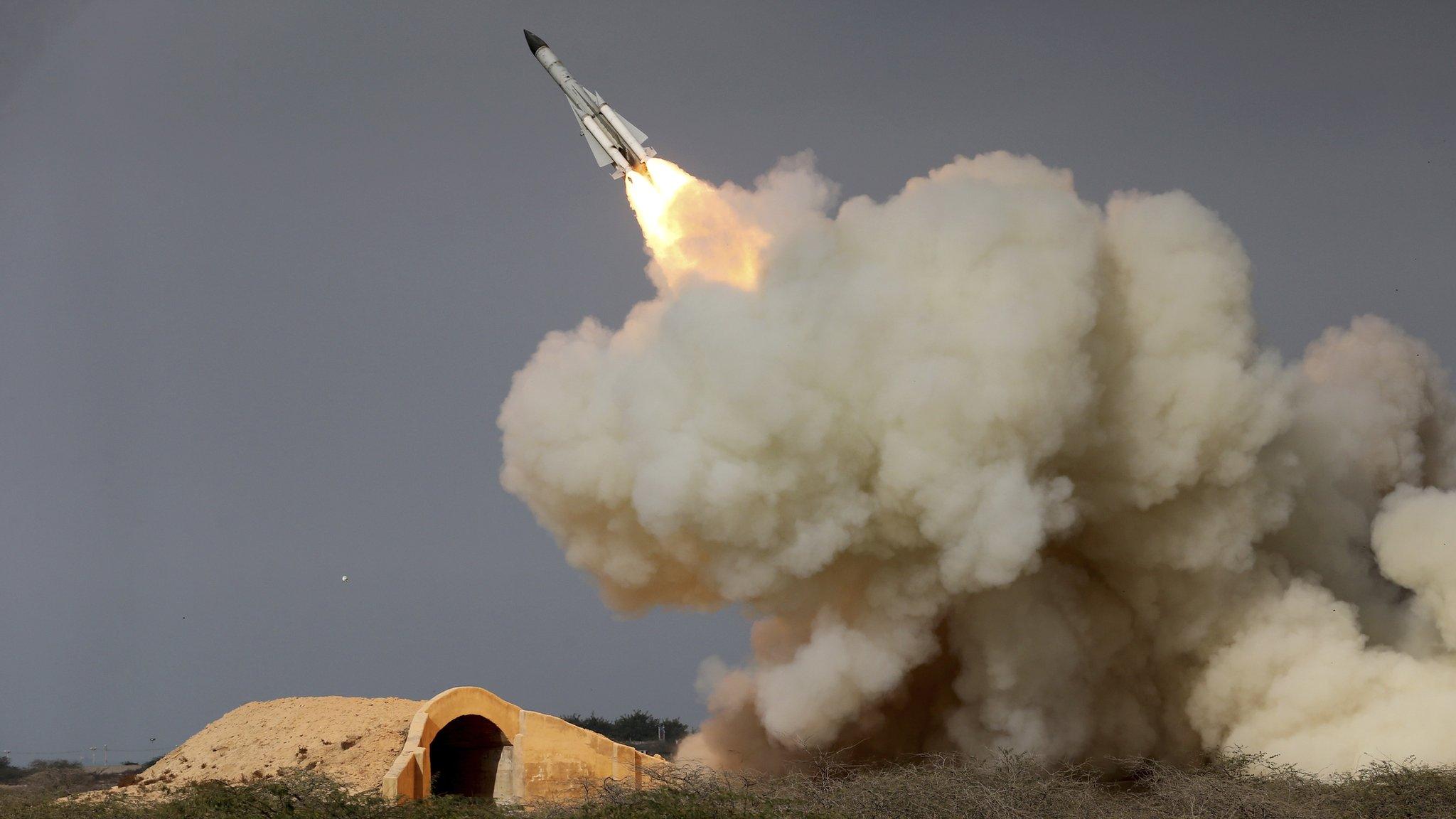
- Published20 May 2017
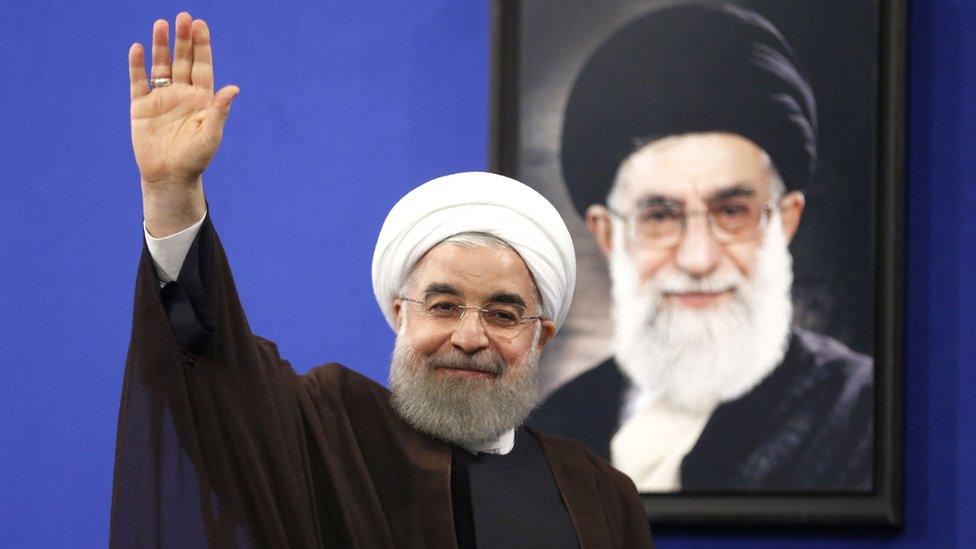
- Published4 February 2017
- Published1 February 2017
